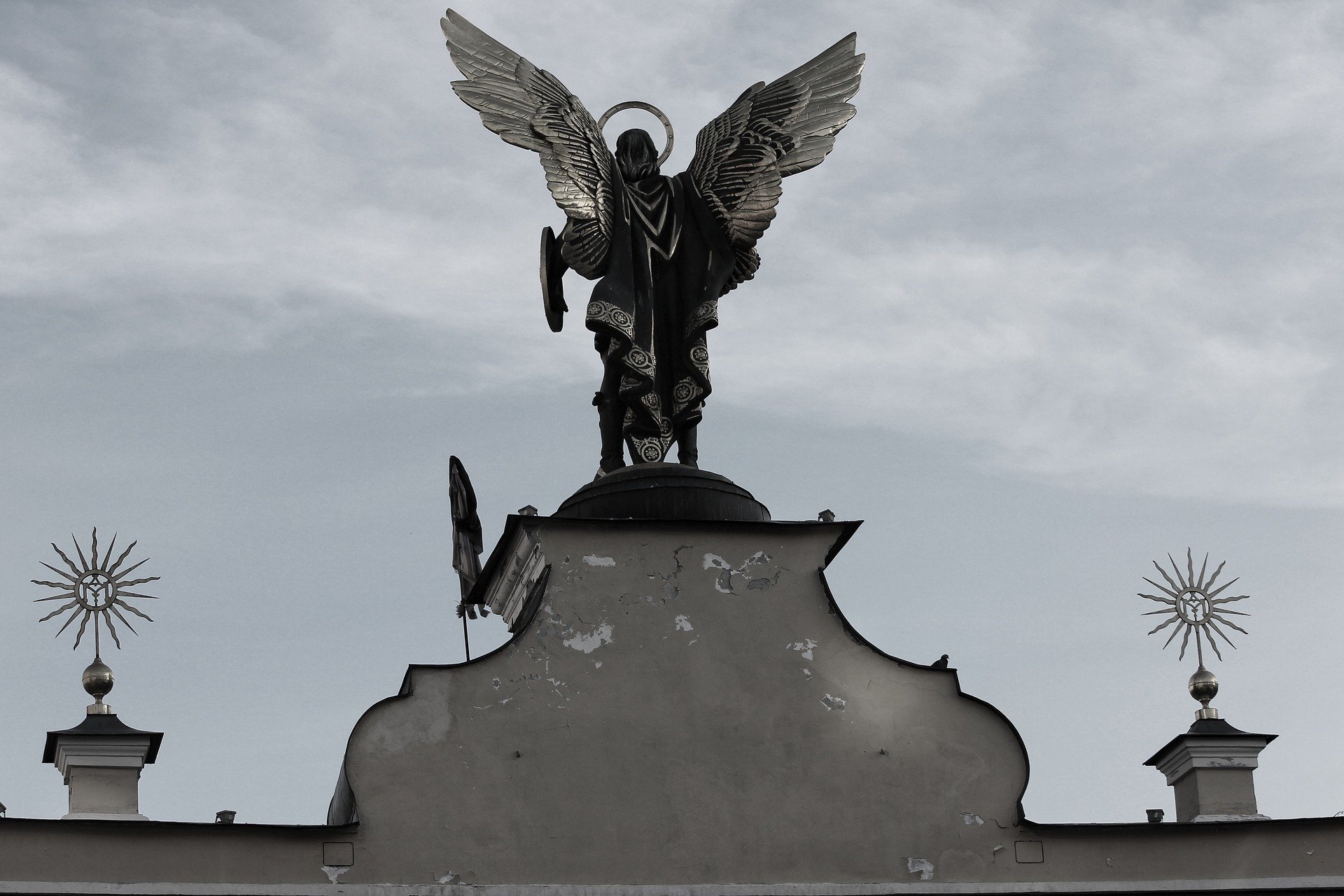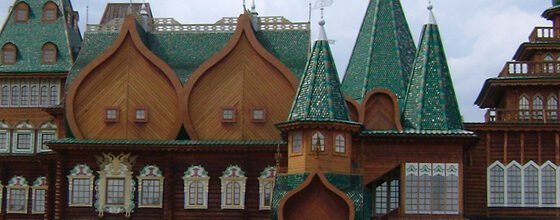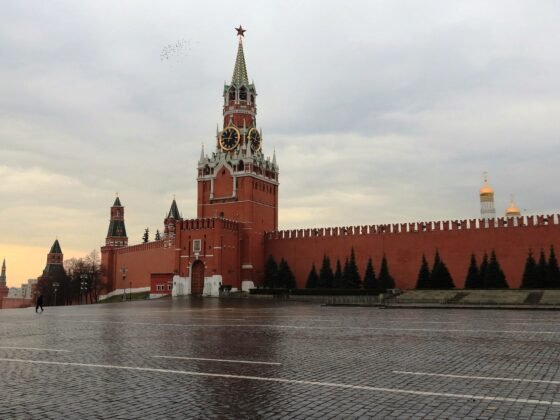February 24
We woke up early in the morning around 5am to a Telegram call from our friend saying, “its started”. Most urban Ukrainians receive news from chats or channels on Telegram, Whatsapp, and Viber. We immediately started talking with dozens of people: a chat with coworkers, a chat with students, a chat with neighbors, a chat which was created to party for a birthday of a friend, single messages with friends, calls with parents.
Almost immediately, a significant share of our friends decided to hit the road and move west: Zhytomyr, Vinnytsia, Lviv, Ternopil, Ivan-Frankivsk. We were invited to join them but decided to stay in Kyiv.
We agreed to keep each other posted. When someone types “update” or “status” in the chat, all other people should respond with their location, mental health, and support needs. We coordinated and shared info on gasoline stations, traffic jams, and the possible bombing of roads. Also, we were sharing addresses of people who can host travelers.
We were prepared to stay in Kyiv, but were scared anyway. My girlfriend and I had stocked a lot of food, water, a medical toolkit, and warm clothes about a week ago. We also had all necessary documents (with printed and digital copies) and handwritten addresses and phone numbers of relatives and friends in Ukraine and other countries. We also prepared our backpacks. At first my backpack was huge, though the next day, I eventually dropped a lot of stuff out, keeping only the most essential things. We also used a special Telegram chatbot “Ready to everything.” This bot has crucial information about what to have in our bags, the sequence of actions in case of attack, and the address of all army offices. We also used a link to the Google map with all addresses of shelters nearby. Although it was created by government institutions, we received it through multiple telegram channels of volunteers and friends.
During the day, we started following all the official chats and channels: city administration, defense, and internal affairs. Many people shared rumors and fake news in chats, so the government had to combat it. Our friends from Vox Ukraine created a special reporting line dedicated to fakes and disinformation. All major media announced that it is crucial to report only verified information and asked to share this message to all channels.
Many volunteers, including my coworkers and students, started to work on lists of people who can host travelers, petitions to Western governments, calls for sanctions, etc. We also monitored websites and channels with disinformation to report and block them. And, of course, we spent a lot of time answering to all our international friends, colleagues, drinking buddies, conference attendees, journalists. At some point, I simply screenshotted one of my answers and forwarded it as a template since it was very time costly to keep up with all the writing. Among others, I received several messages from my Russian friends. Some of them asked me “is it true?”. Apparently, the information there was so scarce and obscure they had to verify it with me.
We spent all day reading scary news about attacks in all parts of Ukraine: West, South, North, East. The tactics were to bomb infrastructure (airports, warehouses, military bases) and then move through borders. Many experts told us this is what is going to happen, but the idea that Belarus is complicit and that Russian troops will move from the north still was a shock to me. Also, it was a moment of quick realization that there is no safe place anymore.
To conclude, this day for me was a day of coordination and communication. We used pre-existing social networks and quickly created new ones to share essential information, keep an eye on each other, and support our army.
February 25
We woke up around 4-4.30 a.m., hearing some explosions. We checked all channels and saw many photos and videos, also official statements, that the Kyiv air defense system shot down rockets. One of them fell on the residential area in Kyiv. Several of my friends lived nearby, they decided to move to another neighborhood in Kyiv.
We spent the morning reading and checking on our friends. Then, we decided to hide in the shelter which is the basement of our house. We took our cat and went there. In the shelter, we also met two of our neighbors. In big cities people often don’t know the names of their neighbors. They barely say hi, usually minding their own business instead. Today, we discovered that we have amazing neighbors. We exchanged contacts, introduced our cats, and talked about work and life. Eventually one of them decided to take a train to Western Ukraine, to be closer to her relatives. Another has stayed in Kyiv just like we did.
Then, around 11am (I can’t remember), my girlfriend and I decided to walk around and check the local army office. We both prepared backpacks for if we were enlisted as volunteers, and needed to move somewhere. We walked to the office but saw a huge crowd: men and women, young and old, with full ammunition and small touristic bags. The line of volunteers was huge. Some men told me they were here a day before. They reserved a spot in the queue and returned today again. People were called one by one based on previous experience (e.g. served in the army). We stayed there for a while but eventually decided to go and check other places.
We went to the military hospital nearby, thinking of donating blood. When we arrived, we were told that the donations were taken only in the early morning (we arrived too late), so they asked us to come back tomorrow. We walked home, getting some groceries on our way (avocados and cigarettes seemed like necessary supplies to
us).
Then, we spent all day walking to the shelter and back while reading all the news and checking with friends and coworkers. We learned and shared information for more donations. Many people supplied empty bottles for Molotov cocktails, portable gas burners, medicine, and other supplies, not to mention food, money, and warm
clothes. My family and friends donated money using the state service «Дія». Sometime ago, the Ukrainian government provided financial aid during the pandemic. They offered 1000 UAH to all vaccinated Ukrainians. This money was allowed to be spent on books or concerts to help these businesses. The government also allowed regular people to send this money to the army on this day. Millions of UAH were donated immediately.
There was terrible news about Gostomel, near Kyiv. Russian forces tried to land there, while Ukrainian troops defended the place all day. One of my friends and coauthors lives in this city. Her husband is in the territorial defense forces. We were chatting on Facebook and wishing each other to stay strong.
We also were reading news about saboteurs in Kyiv and other cities. Ukrainian civilians were asked to search for special marks that Russian saboteurs leave on walls, on the ground, or on roofs. These marks help to target missile strikes. My girlfriend and I decided to look for such marks in the evening. We did not find any. So she
wanted to climb the house to see the roof (we did not have the keys). She loves climbing. It was dark and slippery. It took me a lot to convince her not to climb a building like a spider-woman. She also texted her climbing buddies and consulted with them on how to do it. Collectively, they decided not to risk it, thank God.
A curfew from 22:00 – 07:00 was announced.
Eventually, we ended up staying in our shelter all night. Our officials warned civilians that the night would be very tough. The Kyiv was under attack from the North (tanks were coming), and air strikes were expected.
Our shelter had decent Internet, so we were reading news about local fights all night. I read that the Ukrainian army destroyed a column of Russian vehicles around Beresteiska in Kyiv. I regularly go to Beresteiska subway station, near Kyiv School of Economics, where I teach and do research. The fight was pretty close to our
campus.
Today was full of events and terrible news, but we were hoping for the best, and our spirit was uplifted with the news about the Ukrainian army staying strong and volunteers ready to help.
February 26
First thing in the morning, I read the news that a house on Str. Lobanovskogo 6-a was bombed in Kyiv. I know this address very well because my friend lives there. She is an excellent sociologist, who published in European Sociological Review and other international venues. She is a fantastic person with two kids. She is from Donetsk originally, and Kyiv was her second home. Later, she posted on Facebook that she was alive and safe.
Then I read this crazy news that someone gave birth in a shelter in a subway. Very cute.
The day was full of events for the Ukrainian army. There was brutal combat in many cities. The most difficult part was knowing that Russian troops were in Kyiv, riding through the neighborhood where I was born – Obolon. All day, our army chased them and pushed them back.
My girlfriend received a call from her relatives in Russia. They tried to convince us that all this is not happening, and Kyiv was not under attack. Apparently, they knew better.
The Russian army bombed residential areas in different cities, which I read from official channels but also from my friends who were sending photos and videos from their towns.
Our official channels distributed info on how regular people can help the army, such as removing road signs, reporting movements of Russian vehicles, and watching out for tanks. When a column of tanks is passing, a special car with gasoline is with it, and one must stop this car, so the tanks won’t have gasoline to move
further. More friends joined territorial defense forces.
My university kept working on launching our own fundraising campaign and raising awareness. Dozens of foreign colleagues have reached out to offer their support. Some of them created a twitter hashtag #UnisStandWithUkraine. We participated in the Twitter “radio” conference (link). More than 9,000 people had listened at the time I wrote this text.
Eventually, we decided to sleep at home. Rest and mental health is essential. We developed two practices: 1) one person sleeps, another monitors news and air sirens 2) both people sleep but we set alarms every hour.
February 27
Events are difficult to count. There is so much news about fights here and there, and a lot of saboteurs who dress up as civilians. Cities around Kyiv are being bombed. I worry for Sumy and Kharkiv a lot.
Shocking tactics are being used in Kyiv. Saboteurs use ambulances to disguise themselves.
There is also worrying news from Belarus. It seems that the country will join Russian forces.











